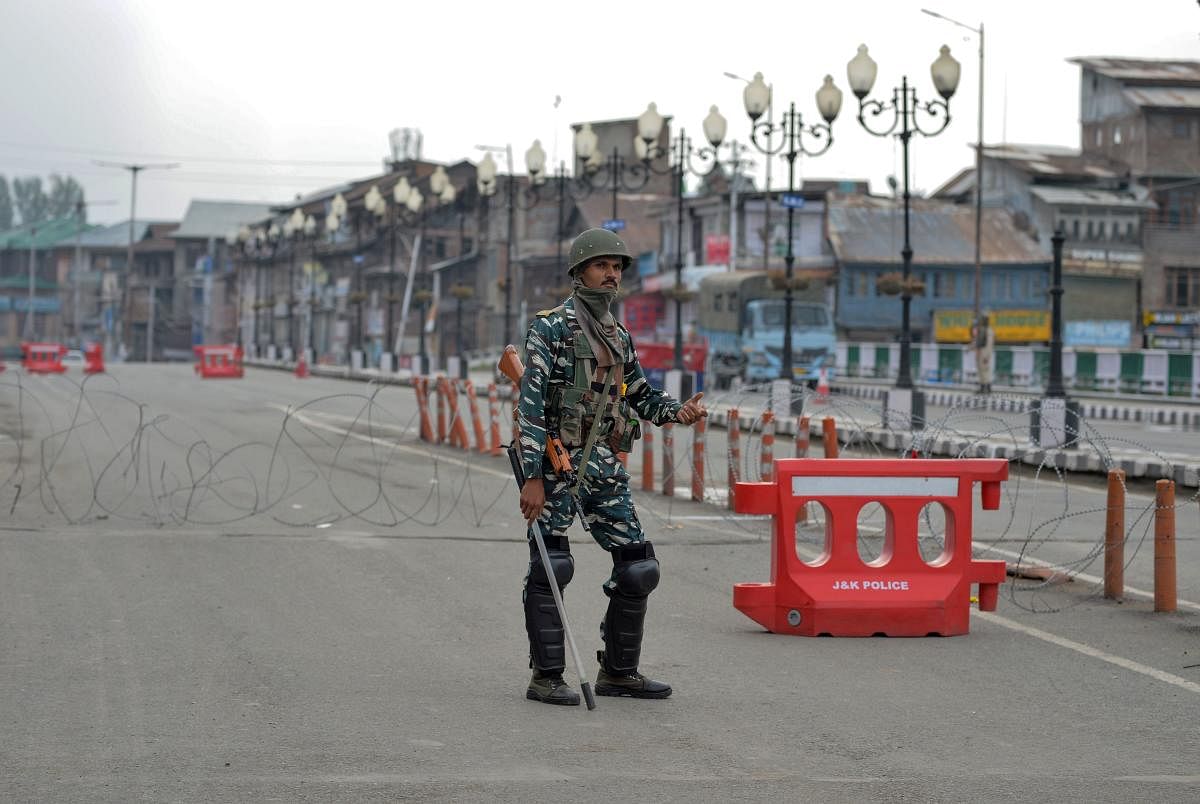
Gulf Arab countries have remained mostly silent as India revoked the special status to Jammu and Kashmir, imposing a sweeping curfew in the region and cutting off residents from all communication and the internet.
This muted response is underpinned by more than USD 100 billion in annual trade with India that makes it one of the Arabian Peninsula's most prized economic partners.
Regional heavyweight Saudi Arabia urged restraint and expressed concern over the brewing crisis. Other Gulf countries — Kuwait, Qatar, Bahrain and Oman — do not appear to have issued any statements.
The United Arab Emirates has gone a step further by apparently siding with India, calling the decision to downgrade Kashmir's status an internal matter.
Saudi Arabia's response is complicated by its close ties with both India and Pakistan, which have fought two wars over the disputed Himalayan region, as well as its ideological rivalry with Turkey and Iran for supremacy in the Islamic world.
Pakistani Prime Minister Imran Khan has reached out to leaders in Saudi Arabia and Bahrain in recent days to discuss India's actions in Kashmir, but it's unclear whether he would find Arab backing if he took his concerns to the United Nations Security Council.
On Thursday, Khan criticised the international community's silence over Kashmir.
The brief Saudi statement made no reference to Kashmir tensions. It said the kingdom "is following up on the current situation" and called for a "peaceful settlement" in line with international resolutions.
Gulf Arab states are home to more than 7 million Indian expatriates who help drive the region's economy and keep its cities teeming with doctors, engineers, teachers, drivers, construction workers and other labourers.
Nowhere in the region is this relationship more pronounced than in the UAE, where Indians outnumber Emiratis three to one. Bilateral trade surpassed USD 50 billion in 2018, making India the UAE's second-largest trade partner.
Indian investments in the UAE amount to USD 55 billion and Indians are the largest foreign investors in Dubai's real estate market, according to India's Ministry of External Affairs.
Meanwhile, DP World, Dubai's global port operator, has plans to develop a logistics hub in Jammu and Kashmir.
The UAE doubled down on this strategic relationship when it signalled support for Indian Prime Minister Narendra Modi's government as New Delhi rushed to send tens of thousands of additional soldiers to Kashmir.
The troops were deployed to prevent protests over the August 5 decision to revoke the special constitutional status of Jammu and Kashmir.
Turkey, which has less than USD 7 billion in annual bilateral trade with India, has thrown its weight behind Pakistan. A readout from a recent call between the President Recep Tayyip Erdogan and Pakistan's prime minister emphasized Kashmiri self-determination.
Iran permitted a symbolic protest of around 60 students outside the Indian Embassy in Tehran last week, and a senior cleric there told worshippers during Friday prayers that India's actions in Kashmir were "an ugly move."
However, both President Hassan Rouhani and the foreign ministry have issued more tempered statements, calling for dialogue and peace between Pakistan and India. The varied response comes as bilateral trade plummets following India's decision to stop buying Iranian oil due to US sanctions on Iran.
In contrast, Saudi Arabia is home to 2.7 million Indians and is India's second-biggest supplier of oil after Iraq, according to Indian government statistics. Saudi oil exports to India dominated USD 27.5 billion in bilateral trade last year.